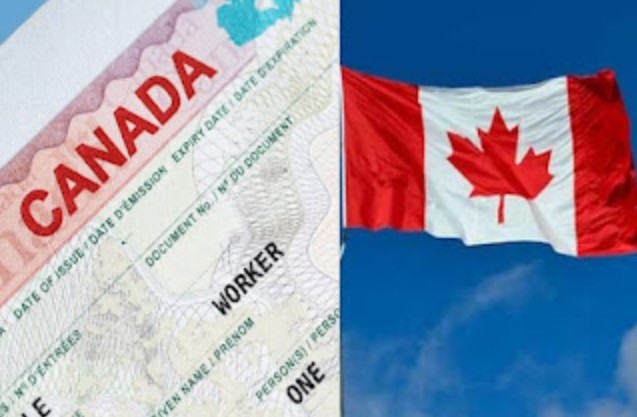Opinions
How Prince Arimoro relinquished Owa-Obokun’s seat to Ajimoko over old age

Ijesa is a powerful sub-ethnic group in Yorubaland. It boasts a long history of great culture, tradition, and leadership. The forefathers of Ijesa are men of courage, respect, and resilience who made the kingdom the center of attention and famous for its history, vitality, and festivals, particularly the Iwude, which celebrates the Ijesa people’s cultural heritage with enthusiasm.
Only men of honor and vision hold privileged seats in the kingdom. You either have the uncommon qualities of a warrior or are an outstanding civil administrator. Ijesaland is blessed with a lengthy series of notable leaders who have given up their sweat and resources to build a better kingdom.
As social actors of change, Owa Obokun Ofokutu, the son of Owa Obokun Bilaro, who ruled from 1846 to 1858, and his sons were essential in shaping government and civil administration in the kingdom. Those who are conversant with history would understand better that Owa Obokun Ofokutu and his sons led the Ijesa when various factions vied for control, influencing trade and alliances during civil wars in Yorubaland.
The Ijesha people continue to respect and take pride in their rich history, distinct dialects, craftsmanship, tradition preservation, and cultural heritage. The Ekiti Parapo War, which lasted from 1877 until 1893, was a major fight involving several Yoruba cities, including Ijesaland, as they fought for authority and territorial dominance.
During the Ekiti-Parapo battle, Prince Arimoro, a great warrior in the Ijesha kingdom, emerged as a significant figure of stability, strong resistance to hostility, and an effective administrator. He was a reckoning force who suffered greatly during the war due to the sacrifices he made. Arimoro, a courageous warrior, played an important role in defending Israel from competing factions. His strategic prowess elevated his status as a leader and protector of his people.
Arimoro’s leadership became a rallying point for community togetherness and resilience. At a time when turmoil threatened to tear the kingdom apart, Arimoro donned the garment of unity and convinced people to band together to defend Ijesaland. He played an important part in the conflict, which helped to establish a distinct cultural identity for the Ijesa people by emphasizing the kingdom’s rich legacy and raising army spirit.
Following the Ekiti-Parapo battle, the political dynamic in Ijesaland altered, resulting in new alliances and conflicts. Arimoro’s activities helped to develop a more ordered government system in the kingdom. His actions during the conflict have become legend, inspiring future generations. His bravery is remembered in oral histories and folklore, supporting the kingdom’s principles of courage and leadership. Arimoro also emphasized business as a measure of economic recovery.
Many people have puzzled why Prince Arimoro handed up leadership of the Ijesa troops to Ogedengbe. The explanation is not farfetched. All commanders on the war front were summoned by the then-Owa of Ijesaland in response to the then-Ooni of Ile-Ife’s SOS during the first Modakeke insurrection. According to credible stories, Prince Arimoro, one of the war front’s oldest leaders, decided to represent others in responding to Owa Obokun’s summons when the Modakeke army was moving into Ilesa. Age was also a factor.
The time Arimoro left the war front was when the European intervention in the war was in top gear. Captain Bower’s expedition to the war front had The Rev Samuel Johnson, who wrote the first authoritative historical record on the Yoruba Civil War. His representation became the reference record of the Yoruba Civil Wars of the 19th century.
Arimoro was already in Ilesa, facing the Ife-Modakeke military campaign by then. It was after his success at Ife campaign that Agba ljesas beaconed on him to ascend vacant throne of Owa which he declined on account of age. He was persuaded to recommend any of his kith and kin, during which time Ajimoko was recommended.
Ajimoko became the Owa in 1896-1901. Since then, the Arimoros have supported fellow heirs. This time, the Arimoros are in play, and if history and fairness are to be considered, there should be no counter or competing interest from others. Not only did Arimoro show love for the progress of Ijesha land when he passed the opportunity of being Owa to his kith and kin Haastrup (Ajimoko), so a young and well-traveled kin should rule.
The Arimoros have many prominent people who have met and surpassed these qualities. How things unfold will be interesting to see, but what is certain now is that The Arimoro Dynasty of the Owa Obokun Bilaro Lineage is in play. Public opinion polls are incredibly upbeat about this development.
Dire
Sir (Prince) Adegoke ‘Dire Arimoro Kjw; Fcipm
-

 Osun News5 days ago
Osun News5 days agoArrested OSTMS Chairman, Alowonle On Life Support, As Govt Seeks Prosecution Head of Anti-Kidnapping Squad
-

 Education1 day ago
Education1 day agoNigerian Varsity Students Elect First Female SUG President (Photo)
-

 Politics7 days ago
Politics7 days agoTinubu sacks top government official, names replacement (photos)
-

 Osun News5 days ago
Osun News5 days agoPolice Arrest Gov Adeleke’s aide, Alowonle
-

 Foreign5 days ago
Foreign5 days agoCanadian Govt Takes Fresh Action On Study Permits, Permanent Residency For Foreign Students
-

 Osun News3 days ago
Osun News3 days ago“Call Olufon of Ifon-Osun to order before he causes another round of bloody clash” – Olobu-in-Council tells Gov Adeleke
-

 Politics6 days ago
Politics6 days agoServing Senator Suspended From Party Over Alleged Anti-party
-

 Osun News4 days ago
Osun News4 days agoAlowonle Vs Nigerian Police: My Hands Are Clean ~ Oludo Prince





